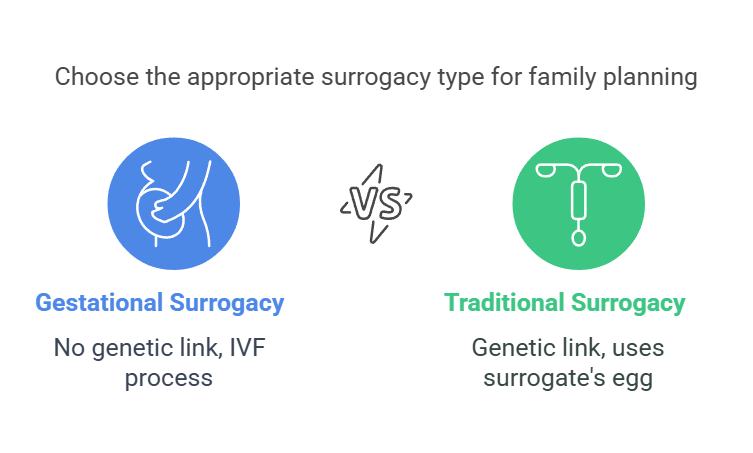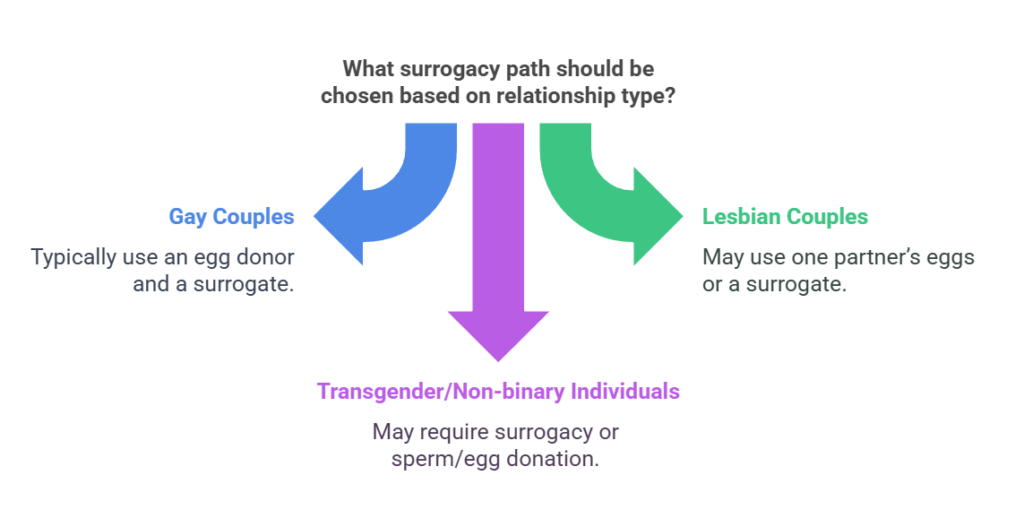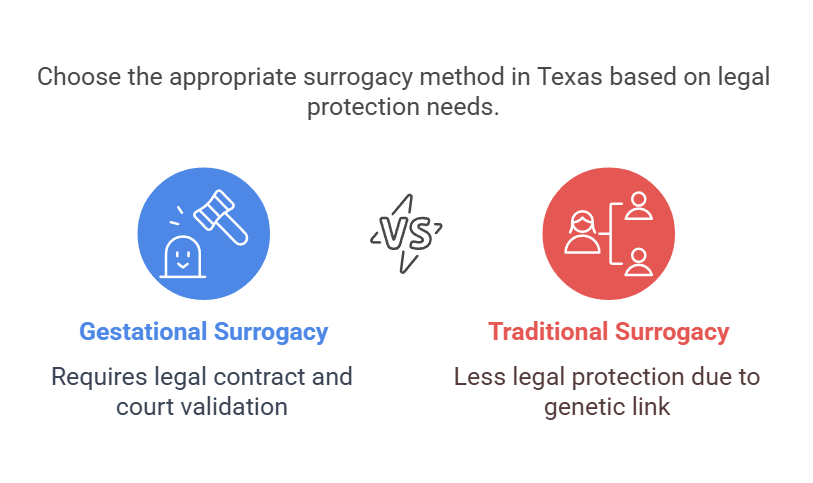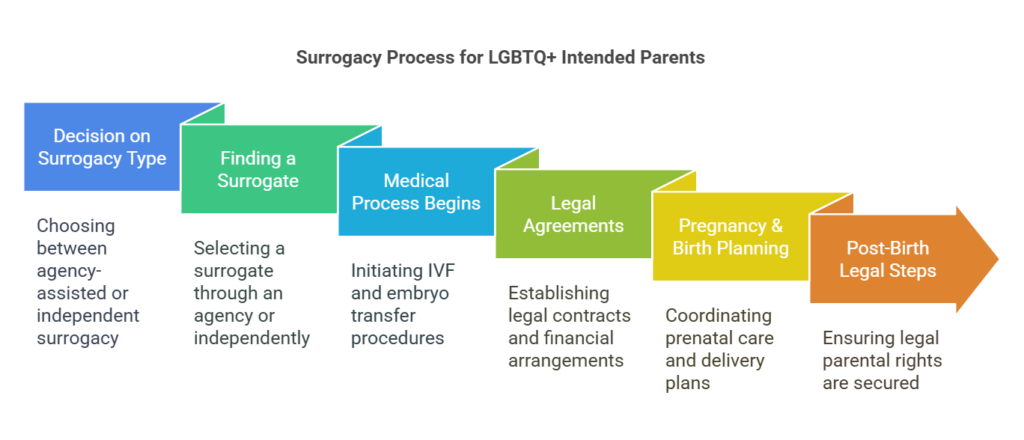I. Introduction
For many LGBTQ+ individuals and couples, surrogacy has become a viable and fulfilling way to build a family. With advancements in reproductive technology and growing social acceptance, surrogacy offers same-sex couples and LGBTQ+ individuals the opportunity to have a biological child.
Houston, as one of the most diverse cities in the U.S., provides a welcoming environment for LGBTQ+ intended parents pursuing surrogacy. Texas, while having some unique legal considerations, allows gestational surrogacy, making it possible for LGBTQ+ families to establish legal parental rights.
This guide walks you through the key aspects of surrogacy for LGBTQ+ families in Houston, including the medical process, legal considerations, and steps to finding the right surrogate.
II. Understanding Surrogacy for LGBTQ+ Families
Surrogacy is an arrangement where a woman (the surrogate) carries a child for intended parents who may not be able to conceive or carry a pregnancy themselves. There are two main types of surrogacy:
- Gestational Surrogacy: The surrogate carries an embryo created via in vitro fertilization (IVF). The egg and sperm are provided by the intended parents or donors, and the surrogate has no genetic link to the baby.
- Traditional Surrogacy: The surrogate’s own egg is fertilized using sperm from an intended parent or donor. This type is less common due to legal and emotional complexities.
For LGBTQ+ couples and individuals, gestational surrogacy is the preferred method. This allows one or both parents to have a genetic connection to the child while ensuring clear legal parentage.

Role of Donors in LGBTQ+ Surrogacy
Depending on the intended parents’ biological needs, an egg donor, sperm donor, or both may be required:
- Gay couples will typically use an egg donor and a surrogate.
- Lesbian couples may choose to use one partner’s eggs while the other partner carries the pregnancy or use a surrogate.
- Transgender and non-binary individuals may require surrogacy, sperm/egg donation, or embryo donation depending on their reproductive health and family goals.

III. The Legal Framework for LGBTQ+ Surrogacy in Houston
Understanding the legal framework is crucial to ensuring a smooth surrogacy journey. While Texas allows gestational surrogacy, specific legal steps must be taken to protect the parental rights of LGBTQ+ intended parents.
Surrogacy Laws in Texas
- Gestational surrogacy is legal in Texas, but it requires a legally binding contract.
- Traditional surrogacy is not as legally protected, as the surrogate has a genetic link to the child.
- Texas law requires that the surrogacy agreement be validated in court before the embryo transfer takes place.
Establishing Parental Rights
- For married couples, Texas law allows both parents to be listed on the birth certificate if they obtain a pre-birth order.
- Unmarried LGBTQ+ couples or single intended parents may have additional legal steps to complete, such as a second-parent adoption or parentage order, to ensure full parental rights.
Since laws vary and can be complex, working with an experienced surrogacy attorney in Houston is highly recommended to navigate the legal process effectively.

IV. The Surrogacy Process for LGBTQ+ Parents
1. Choosing the Right Surrogacy Path
LGBTQ+ intended parents must decide whether to pursue surrogacy through an agency or an independent journey:
- Agency-Assisted Surrogacy: A surrogacy agency helps match intended parents with a surrogate, provides legal guidance, and manages medical coordination.
- Independent Surrogacy: Intended parents find a surrogate on their own and work directly with fertility clinics and attorneys. This approach can reduce costs but requires more personal coordination.
Additionally, intended parents must decide whether they will use their own sperm/eggs or work with a donor.
2. Finding a Surrogate
Surrogates can be found through:
- A surrogacy agency – The most common and secure method, as agencies screen surrogates for medical and psychological suitability.
- A known surrogate – Some intended parents choose a friend or relative as their surrogate, though legal agreements are still necessary.
Houston has several surrogacy agencies that work with LGBTQ+ intended parents, offering support throughout the process.
3. Medical Process & Fertility Treatments
Once a surrogate is chosen, the medical process begins: More (Preparing for Parenthood: Practical Tips for Intended Parents in the Surrogacy Process)
- IVF & Embryo Creation – An egg from a donor or intended parent is fertilized with sperm from an intended parent or donor.
- Embryo Transfer – A fertility specialist implants a viable embryo into the surrogate’s uterus.
- Pregnancy & Prenatal Care – The surrogate undergoes routine medical checkups to ensure a healthy pregnancy.
4. Legal Agreements & Financial Considerations
A surrogacy agreement must be created and signed before any medical procedures take place. The contract outlines:
- The rights and responsibilities of all parties
- Financial arrangements (compensation, medical expenses, and additional payments)
- The intended parents’ legal parental rights
Surrogacy in Houston can cost between $100,000 and $200,000, covering:
- Surrogate compensation
- Egg/sperm donor fees
- Medical expenses and IVF procedures
- Legal and agency fees
5. Pregnancy & Birth Planning
During the pregnancy, intended parents can be involved in the surrogate’s medical visits, planning for the delivery, and preparing for parenthood.
- Hospitals in Houston are familiar with surrogacy births and can coordinate with parents to ensure a smooth process.
- Intended parents should discuss the birth plan with the surrogate and medical providers.
6. Post-Birth Legal Steps
After birth, the final legal steps ensure the intended parents’ names are on the birth certificate. In Texas, this may involve:
- A pre-birth order for married couples, which automatically grants legal parentage.
- A post-birth adoption or court order if additional legal steps are required.

V. Conclusion
Surrogacy offers a life-changing opportunity for LGBTQ+ individuals and couples in Houston to build their families. With the right legal guidance, medical support, and emotional preparation, intended parents can navigate the process with confidence.
If you’re considering surrogacy, the first step is to consult with a surrogacy agency or attorney to explore your options and ensure a legally protected, well-supported journey to parenthood.




